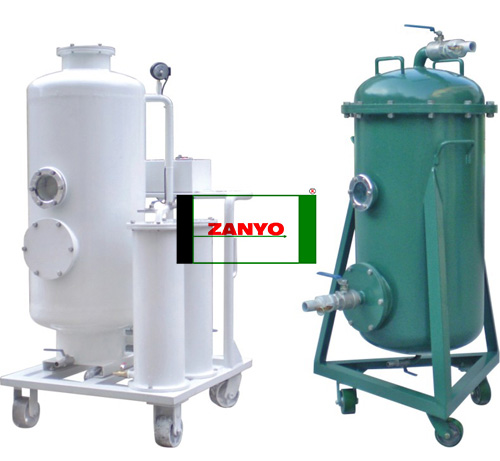Why Regenerated Transformer Oil Is Vital for Reliable Power Solutions
The essential duty of regenerated transformer oil in making sure the integrity of power systems can not be overstated. By recovering the oil's fundamental chemical and physical buildings, the regrowth procedure considerably enhances its dielectric toughness and thermal performance.
Importance of Transformer Oil
Transformer oil plays an important function in the efficient procedure of electrical transformers. By providing thermal conductivity, transformer oil dissipates warmth produced throughout electrical operation, which is essential for preserving ideal operating temperatures and lengthening the life expectancy of the devices.
In addition, transformer oil acts as a barrier against dampness and air, which can cause oxidation and destruction of transformer products. The presence of pollutants in the oil can significantly hinder its insulating buildings, leading to functional ineffectiveness and prospective tools failure. Regular surveillance and maintenance of transformer oil are therefore vital to making sure the proceeded effectiveness of transformers.
The top quality and structure of transformer oil are critical, as they straight impact the integrity and performance of the electrical systems in which they operate. Comprehending the significance of transformer oil is crucial for markets and utilities reliant on durable power framework, stressing the requirement for effective monitoring and regeneration processes to maintain oil stability in time.
Benefits of Regrowth Process

In addition, the regeneration process minimizes the destruction of oil, which can bring about raised oxidation and acid development. This not just boosts the reliability of the oil but additionally lowers the risk of transformer failings as a result of insulation break down. The enhanced top quality of regrowed oil permits transformers to run at ideal levels, eventually resulting in boosted power effectiveness and reduced functional prices.
Additionally, the regrowth process contributes to preserving the total health and wellness of the power system. Transformers can run longer without the requirement for oil replacement, thus decreasing downtime and maintenance initiatives. In recap, the regrowth procedure gives substantial advantages by boosting the durability and performance of transformer oil, ensuring that power systems run reliably and effectively with time.
Environmental Influence and Sustainability
The regrowth process of transformer oil considerably alleviates environmental concerns connected with oil disposal and waste administration. Standard disposal methods for used transformer oil pose considerable risks, including soil contamination and water contamination. By restoring oil, these dangers are noticeably minimized, as the procedure recycles existing resources as opposed to adding to lose accumulation.
In addition, regenerated transformer oil can be reused in various applications, which advertises a round economy. This not only reduces the requirement for virgin oil removal-- a procedure that can be ecologically damaging-- yet additionally saves natural deposits. The regrowth procedure itself employs innovative filtration and filtration strategies that eliminate unsafe pollutants, guaranteeing that the end product exceeds or fulfills market requirements for performance and safety and security.

Enhancing Transformer Performance
Substantial enhancements in transformer performance can be attained through the usage of regenerated transformer oil. This oil, produced via sophisticated filtration procedures, significantly improves the electrical insulation homes of transformers. By removing pollutants and pollutants that usually jeopardize efficiency, regrowed oil makes sure premium dielectric strength, decreasing the risk of electrical failures.
Furthermore, regenerated transformer oil exhibits improved thermal conductivity, which promotes efficient heat dissipation. This particular is critical for keeping ideal operating temperatures, consequently lengthening the life expectancy of transformers and lessening the possibility of overheating - Transformer Oil Regeneration. Boosted thermal management additionally adds to the total integrity of power systems
In addition, the chemical security of restored oil stops the formation of harsh acids and sludge, which can negatively affect transformer parts. By preserving a cleaner inner environment, this oil minimizes maintenance needs and prolongs service periods.
Cost-Effectiveness and Efficiency
In terms of cost-effectiveness and effectiveness, regenerated transformer oil presents a compelling alternative to standard oils. The regrowth procedure not only gets rid of pollutants yet likewise brings back the oil's original residential properties, expanding its functional lifespan. This long life converts into reduced regularity of oil substitute, consequently decreasing operational prices gradually.
Furthermore, using regrowed oil can dramatically reduce energy losses linked with inefficient insulating liquids. Its remarkable dielectric buildings guarantee ideal performance, boosting the reliability of power systems. Therefore, organizations benefit from reduced maintenance expenses and decreased downtime, fostering a much more effective operational atmosphere.

Conclusion
In final thought, the regeneration of transformer oil plays a vital duty in making sure the dependability and effectiveness of power systems. By restoring the important chemical and physical residential or commercial properties of the oil, this process enhances dielectric strength and thermal conductivity, inevitably minimizing the risk of insulation malfunction. The ecological benefits associated with recycling resources add to sustainability initiatives, while cost-effectiveness and improved efficiency highlight the need of utilizing regenerated transformer oil in modern-day electrical framework.
Transformer oil plays an essential duty in the efficient procedure of electric transformers. Normal surveillance and maintenance of transformer oil are consequently vital to making sure the continued performance of transformers.
The regrowth process of transformer oil dramatically alleviates environmental issues linked with oil disposal and waste administration. By extending the lifecycle of transformer oil, the power and resources typically eaten in creating new oil Transformer Oil Regeneration Process are substantially lowered.Significant renovations in transformer efficiency can be achieved through the use of regenerated transformer oil.